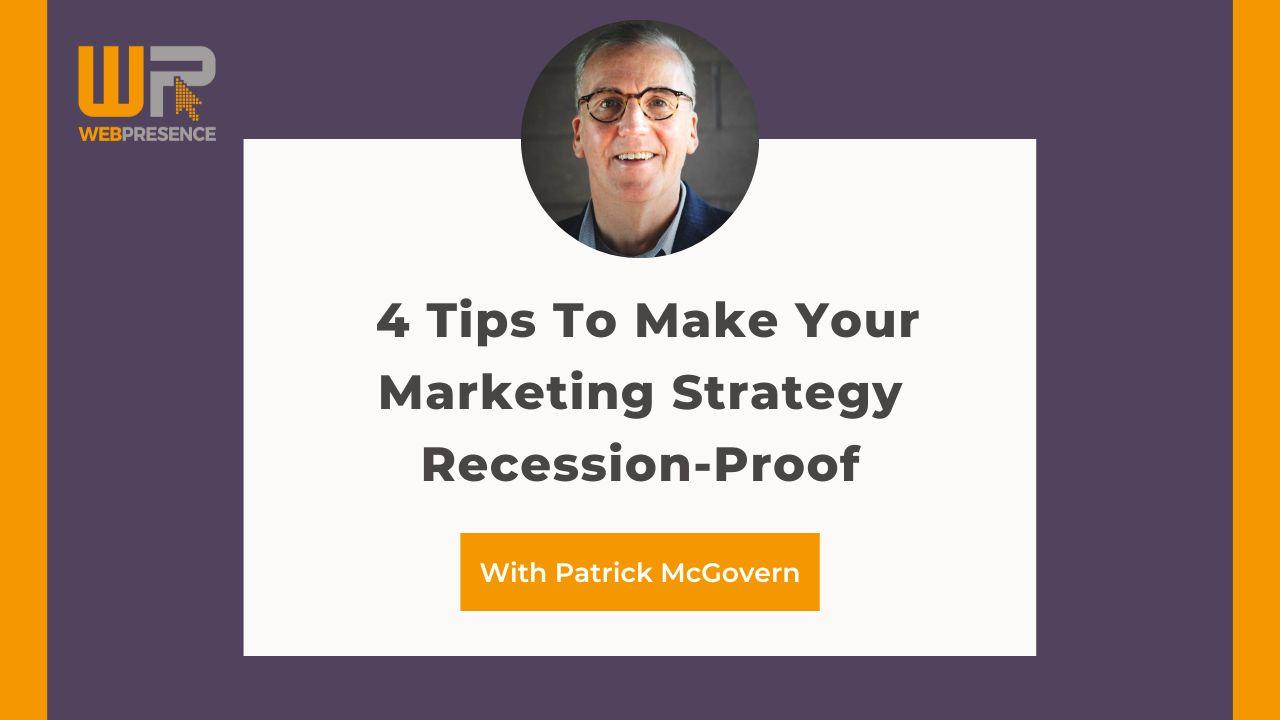In marketing, it can feel challenging to stay optimistic going into a recession as we are usually the ‘first head on the chopping block’ when it comes to budget cuts.
So what can your business do to reduce the impact of the next recession on your business?
In our most recent podcast episode Pat McGovern, director of sales and marketing at Ascedia, shares insights into his personal experience of marketing during a recession and how you can bulletproof your marketing strategy. Here are Pat’s top tips on how to make your marketing strategy recession-proof:
1. Make your company more proactive
In the marketing industry, it is very easy to take more of a reactive approach to working – fighting fires and not having the chance to plan ahead. Being proactive sets you up for success, it allows you to help your clients in an efficient and time-effective way so that you have more time to work on the aspects of your business that generate revenue.
“I think too many agencies back in 2008 were just like, ‘let’s wait, let’s see what happens. Let’s be reactive’. Going forward, I’m encouraging our team to be more proactive.”
2. Use slow periods to your advantage
When things slow down during a recession it can be easy to put your focus on gaining new business and increasing sales but realistically you are highly unlikely to increase your customer base during a recession. In these times it is better to shift your focus inwards and use the time to focus on the things that usually get missed.
“Anytime we talk about developing content, it’s hard to get things done. Why? Because we’re all busy. Yeah, well, slow down. Let’s use this time to create a bunch of great content that’s going to be needed when we come out of this. It’s the case studies, the podcast, that’s the cutting edge. Let’s double down on those types of efforts and really use that when we come out of the recession and lets use this as a business development.”
3. Split your time between top and bottom of the funnel.
Focusing on only one end of the funnel can seem like a great idea – you’re specialised, you’re targeted and you know where to set your goals. However, focusing on only one end of the funnel can leave other areas of your business lacking. Focusing on the bottom of the funnel can seem like the most cost-effective thing to do but in reality, you need to make your brand memorable.
“Basically, 60-70% of my budget, or the budget that I’m recommending should go to the bottom of the funnel and start closing deals. It should have a very positive ROI. Then, 30-40% is going to go to the top of the funnel, which will vary depending on your brand recognition, the kind of environment that you’re in, etc. With this 30-40% you’ve got to be talking about what’s different about you, you’ve got to be talking about things other than just the bottom of the funnel.”
4. Specialists win long-term
In a world with more and more options available to the consumer being the best at what you do is becoming increasingly important. Being a specialist instead of a generalist means that you can provide your consumers with an enhanced experience with shorter wait times on projects and increased value in the areas they need help with. Especially coming out of a recession businesses are looking to specialists for help to get back on their feet as soon as possible.
“I think about it in this way, if I’m coming out of a downturn I’m going to be looking for the partners who’ve got the best case studies, the best record of dealing with my vertical. If I’m a marketing person, that’s not a generalist, that’s a specialist, right? They’re going to be able to get me from point one to point four faster than a generalist. I just think that’s the way it’s going to be.”
So, what can you take away from this? Specialise, slow down, split your budget and be proactive.




